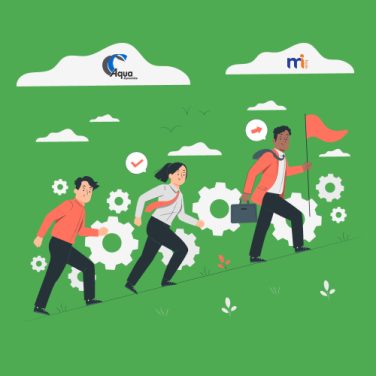
Compliance with labour laws in Malaysia is not just a legal obligation but a strategic advantage. Understanding the breadth of these regulations ensures that businesses operate smoothly, avoiding penalties and fostering a fair and productive workplace environment.
These laws form the backbone of employment practices, dictating how employees should be treated and what employers can expect in return.
At the heart of the vast legal landscape surrounding Malaysia’s labour laws is the Employment Act of 1955, a fundamental piece of legislation designed to set the standards for working conditions, wages, leave entitlements, and more.
Moreover, staying updated with Malaysia’s labour law amendments is crucial. Recent changes, like those implemented due to the Employment (Amendment) Act 2022, reflect the evolving work culture and economic conditions in the country.
For business owners and HR managers, this means continuously adapting to maintain compliance and capitalise on best practices.
Importance of labour law compliance
Labour law compliance ensures that companies respect and uphold the rights of their workforce, building a culture of trust and loyalty.
For businesses, it helps in reducing the risks of legal disputes and enhances the company’s reputation as a fair employer.
By aligning with Malaysia’s labour laws, companies can better manage employee expectations and operate more effectively in the competitive market.
Scope and coverage
The Employment Act 1955 is a pivotal piece of legislation that governs the employment landscape in Malaysia.
Designed to protect the rights of the workforce, the Act provides a comprehensive framework for managing employer-employee relations. It is crucial for businesses to understand the scope and coverage of this Act to ensure compliance and foster a positive working environment.
Primarily, the Employment Act 1955 applies to employees earning less than RM 2,000 per month and those engaged in manual labour. Special provisions, however, extend to employees earning up to RM 4,000, affecting areas such as overtime regulations and termination benefits.
Notably, this Act does not govern employment laws in Sabah and Sarawak, which have their own respective ordinances.
The Act also includes gig workers under specific conditions related to supervision and compensation, adapting to the evolving labour market dynamics. By understanding these nuances, employers can effectively manage their workforce and avoid potential legal pitfalls.
Definitions and terminologies
The Employment Act 1955 incorporates a variety of critical terms and definitions that employers should be familiar with. These terminologies help delineate the boundaries of employment law within the country, ensuring clarity for both employers and employees.
- Employee: Under the Act, an employee is defined based on factors like supervision, provision of tools by another, essentiality to an enterprise, and receipt of regular compensation.
- Employer: Any person or organisation that hires an employee under a contract of service is regarded as an employer.
- Contract of Service: This refers to any form of agreement, whether oral or written, where an employee works for an employer for a specific or indeterminate period.
Understanding these terms is vital for ensuring that employment agreements are structured legally and in alignment with Malaysian labour laws.
For employers, leveraging solutions such as MiHCM Lite Và Enterprise can simplify the process of maintaining compliance with these definitions, as they are designed to ensure payroll compliance with local laws and provide automation in managing employee data.
The Employment Act 1955 serves as a foundational element in Malaysian labour laws, outlining not just the rules by which employment is governed, but also emphasising the significance of keeping abreast with the evolving legal landscape to protect both employer interests and employee rights effectively.
Working hours and overtime
Standard working hours are typically set at eight hours per day, not exceeding 45 hours per week.
Overtime regulations stipulate compensation at a rate not less than 1.5 times the hourly wage for extra hours worked. This applies to employees earning below RM4,000 per month and certain industries such as banking and catering.
Overtime policies also address work on rest days and public holidays, where the compensation can go up to three times the hourly rate.
Employers can capitalise on HR management systems like MiHCM Lite to efficiently track worked hours and automate compliance with these regulations.
Minimum wage and leave entitlements
Malaysian labour laws mandate a minimum wage of RM1,500 per month, which applies uniformly to both Malaysian and foreign workers. This is a fundamental tool to secure a basic standard of living for employees and ensure fair compensation throughout the labour market.
When it comes to minimum wage regulations, organisations must keep abreast of any revisions that affect the legal framework, including changes in wage payment schemes aligned with varying workweeks.
Leave entitlements form another key aspect of Malaysian labour laws. Employees are granted annual leave based on the length of service: eight days for one to two years, 12 days for two to five years, and 16 days for more than five years.
Moreover, sick leave is also allotted based on tenure and can range from 14 to 22 days; maternity leave is essential, with up to 98 days for private sector employees from 2023 onwards.
The role of comprehensive HR solutions like MiHCM Enterprise cannot be overstated in leave management. It assists companies in calculating leave accruals and managing records to ensure full compliance with Malaysian labour law, thereby enhancing the efficiency of HR departments.
Employee rights and employer obligations
Malaysian labour laws encompass a range of employee rights and employer obligations, aiming to foster a harmonious working environment.
Employees have the right to a safe workspace, non-discrimination, timely wage payment, and clear contract terms. Contracts must detail job nature, compensation, work hours, leave entitlements, and termination clauses.
Employers are required to adhere to statutory deductions such as the Employee Provident Fund (EPF), Social Security Organisation (SOCSO), and Employee Insurance System, contributing significantly to social security measures. Compliance prevents legal disputes and cultivates a fair work setting.
Many companies are turning to automated systems for data-driven HR decisions and maintaining accurate statutory records. By leveraging MiHCM solutions, businesses can streamline HR operations and effortlessly manage compliance tasks.
Employer responsibilities
Employers hold significant responsibilities under Malaysia’s labour laws. They must ensure compliance with regulations governing working hours, wage distribution, and benefits.
This includes adhering to set minimum wage standards and providing adequate leave entitlements such as annual leave, sick leave, and maternity leave.
Employers are also required to maintain accurate records of employee wages and other employment-related documents, which must be kept for a minimum of five years.
Additionally, employers need to draft comprehensive employment contracts for employments exceeding one month. These contracts should clearly define the nature of work, compensation terms, benefits, and other essential conditions.
Failure to comply with these requirements can result in legal penalties, making it essential for businesses to stay informed about the latest legislative amendments. Implementing a robust HR management system could simplify compliance challenges, as highlighted by MiHCM’s HR and payroll management software that automates these processes.
Employee rights and protections
Employees in Malaysia are entitled to various rights designed to protect their well-being and ensure a balanced work environment. They have the right to fair compensation, safe working conditions, and have access to grievance mechanisms should disputes arise.
Under the Employment Act, employees earning below RM4,000 monthly are entitled to overtime pay, and those exceeding regular hours on public holidays earn at a rate of three times their hourly wage.
Furthermore, employees have the right to challenge unfair dismissals under the Industrial Relations Act 1967, which mandates justified termination. Organisations are encouraged to provide clear, documented reasons for dismissals to align with legal standards.
Ensuring mutual adherence
Both employers and employees must actively participate in fostering a harmonious workplace. Employers should ensure transparent communication regarding company policies and employee rights, while employees need to familiarise themselves with their legal entitlements and responsibly uphold their end of the employment bargain.
Leveraging technology can facilitate compliance and promote a more efficient workplace. By employing advanced payroll and HR systems, like those offered by MiHCM, businesses can streamline their operations, enhance policy transparency, and ensure that both employer and employee obligations are met comprehensively.
Latest amendments
Staying informed about the latest amendments to Malaysia’s labour laws is crucial for both employers and employees. These changes not only reflect the evolving work environment but also ensure the legal framework remains relevant and protective.
One of the significant updates in this area was the Employment (Amendment) Act 2022, which introduced various changes, such as adjustments in minimum wage regulations and an increase in maternity leave entitlements.
The enforcement of new minimum wage amendments was postponed and took full effect from 1 January 2023, a crucial change for businesses to implement in compliance with the Employment Act 1955. Additionally, private-sector maternity leave was expanded to 98 days, aligning with international labour standards.
These amendments underscore the need for businesses to adjust their HR processes and ensure they remain compliant with the Malaysian Employment Act.
Impact on employers and employees
The recent changes in Malaysian labour laws have considerable implications for employers and employees.
For employers, these amendments necessitate a review of existing HR policies and possibly restructuring payroll systems to align with new regulations. This ensures adherence to standards, avoiding potential fines and fostering a positive work culture that respects employee rights.
For employees, these updates enhance job security and benefits. The increase in minimum wage provides financial stability, and additional leave entitlements contribute to better work-life balance.
These improvements are especially pertinent for foreign workers and gig workers, who are now more comprehensively covered under the amended laws provided specific conditions are met.
Incorporating tools like the Employee Self-Service feature can significantly aid in managing these changes. This technology empowers employees by providing easy access to their payroll information, leave balances, and compliance updates, encouraging transparency and efficiency in HR operations.
By understanding these recent amendments in Malaysian labour laws, businesses can strategically position themselves to foster a compliant and supportive work environment.
Using technology for seamless workforce management not only aids in ensuring compliance with local labour laws but also enhances operational efficiency and employee engagement.
This innovative approach helps streamline HR operations, enabling companies to focus on core business activities while staying abreast of legal requirements.
Technology and compliance
In today’s rapidly changing labour market, the role of technology in ensuring compliance with Malaysian labour laws cannot be overstated. Businesses are turning to advanced HR and payroll solutions to align with the dynamic landscape of Malaysia’s employment regulations.
Technology not only simplifies the complexity of managing compliance but also enhances the overall efficiency of HR departments, making it a strategic asset for modern businesses.
One powerful tool that stands out is the MiHCM HR and Payroll management software. This software automates all compliance-related tasks, reducing the risk of manual errors and operational failures.
Its global payroll management feature ensures precise payroll calculations adhering to local labour laws, such as the minimum wage regulations and statutory contributions like the Employee’s Provident Fund (EPF) and SOCSO.
By utilising such technology, employers can focus more on strategic HR decision-making rather than getting bogged down by compliance intricacies.
Overcoming compliance challenges
Aligning with employment laws in Malaysia can present numerous challenges, particularly for businesses dealing with a diverse workforce.
Some of the common hurdles include understanding complex legislative amendments, managing statutory deductions accurately, and maintaining transparent wage records. These challenges call for a robust strategy that integrates technology and informed HR practices.
- Regular compliance audits: Conduct routine checks to ensure all processes align with current legislation. Compliance software can automatically generate reports that highlight irregularities.
- Employee training and communication: Equip HR personnel with the latest knowledge about labour law updates. Open communication channels for employees to understand their rights and responsibilities under the Employment Act 1955.
- Customisable solutions: Implement systems like MiHCM’s custom payroll reports to monitor compliance across different functions, tailor solutions to meet specific business needs, and mitigate risks.
- Data-driven decisions: Utilise data analytics from integrated HR software to make informed decisions about workforce management and to identify potential compliance issues before they arise.
Businesses must understand their workforce’s nuances and local labour laws to navigate these challenges effectively. A proactive approach combined with the right technological tools ensures that compliance is not just a legal obligation but a strategic advantage.
MiHCM goes beyond simple compliance; it facilitates smarter HR decisions by providing action-driven insights. With its data-driven decision-making capabilities, companies can manage employee lifecycles more efficiently, from hiring to retirement while remaining compliant with Malaysian labour laws.
Long-term strategic benefits
Adhering to labour laws in Malaysia provides numerous long-term strategic benefits beyond mere compliance.
Companies that prioritise legal adherence often see improved employee satisfaction, as workers are more likely to feel valued and respected when their rights are protected. This can lead to increased productivity and a reduction in turnover rates, saving valuable resources and time in the recruitment process.
Furthermore, incorporating best practices from the Malaysian labour law framework, such as offering competitive wages and fair working hours, positions companies as attractive employers within the job market. This can enhance the organisation’s reputation, attracting top talent and fostering an inclusive workplace culture.
As the labour laws in Malaysia continue to evolve, proactive adaptations and compliance strategies will secure long-term success and sustainability for businesses across the region.
Câu hỏi thường gặp
Malaysia labour laws can be complex but understanding them is crucial for both employers and employees to ensure compliance and safeguard rights. This FAQ section aims to clarify common questions about Malaysian labour laws.



